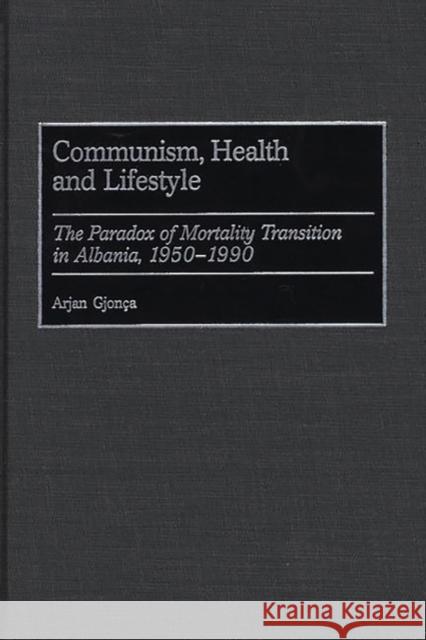Communism, Health and Lifestyle: The Paradox of Mortality Transition in Albania, 1950-1990 » książka
Communism, Health and Lifestyle: The Paradox of Mortality Transition in Albania, 1950-1990
ISBN-13: 9780313315862 / Angielski / Twarda / 2001 / 248 str.
This unique and well-researched study takes a systematic look at the incredible rise in the life expectancy of the population of Albania, one of the world's poorest countries. Through a careful analysis of newly available archive documents and statistics, Gjon DEGREESD, ca examines the social, economic, and political factors behind the success of improving life expectancy at birth from 51 to 71 years in a relatively short period of time and despite extreme poverty and strict isolationist governmental policies. The research, based on data obtained primarily from the Albanian State Archives, which opened in 1994, attempts to explain why the Albanian pattern of mortality, with very high infant and child mortality and very low adult mortality, is so different from that of other East European countries with similar social and economic conditions. Using many tables, figures, and other data to illustrate the trends, the author concludes that lifestyle factors, and to a lesser extent government policies directed at health care, are the most likely determinants of Albania's successful mortality transition.
In his attempt to shed new light on the phenomena of Albania's remarkable success in shifting patterns of mortality, the author compares the changes with those experienced by other similar countries in an effort to determine whether the Albanian success was part of an overall improvement among countries that have good health at low cost or if the Albanian way is a novel route to low mortality in developing countries. To support his conclusion that Albania's success largely depended on lifestyle, he carefully examines the changes in disease and infection, dietary patterns and lifestyle, education and urbanization, fertility levels, and regional differences. By providing a brief but detailed background of the country itself, and its policies and programs to promote lower mortality, Gjon DEGREESD, ca offers readers an interesting portrait of the transitions that have taken place in this poorest of countries.











